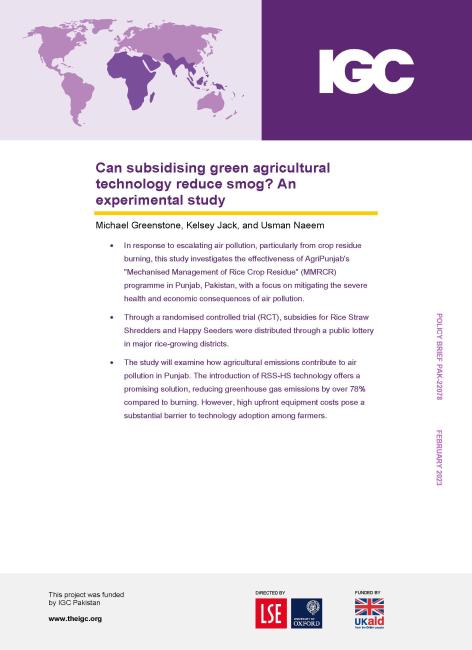Can subsidising green agricultural technology reduce smog? An experimental study
The agricultural sector in Pakistan contributes significantly to air pollution in the Punjab region. Despite the government banning crop burning, it remains a common practice. Can subsidising green technology reduce pollution by shifting farmers away from it?
Pakistan has the second worst air quality in the world, with the agricultural sector estimated to be responsible for 20% of air pollutant emissions in the Punjab province. This is largely due to rice-wheat farmers burning rice stubble after harvest as a fast and affordable way to clear residue.
Burning releases harmful greenhouse gases with effects on air quality, human health and climate change. This practice remains common despite being banned in 2019 by the government, highlighting the need for viable alternative straw management practices.
The Punjab Agriculture Department (AgriPunjab) launched a programme in 2020 to subsidise equipment such as Rice Straw Shredders and Happy Seeders. These make the stubble more manageable and incorporate it back into the soil, removing the need to burn it.
This is believed to reduce burning and therefore greenhouse emissions. Leveraging the machinery, this study will evaluate these possible impacts, particularly in the short-term, to understand whether subsidising green technology reduces pollution by shifting farmers away from crop burning.
The survey design uses a machine learning model with satellite data and on-the-ground spot check data, farmer surveys, and focus groups. This study aims to measure the impacts of the technology itself while also investigating factors that influence uptake in the context of heavy government subsidies.





